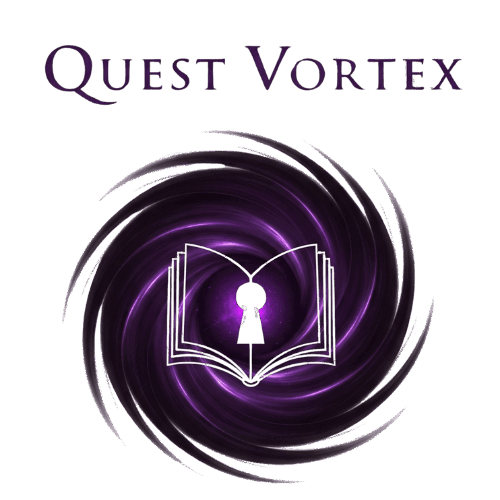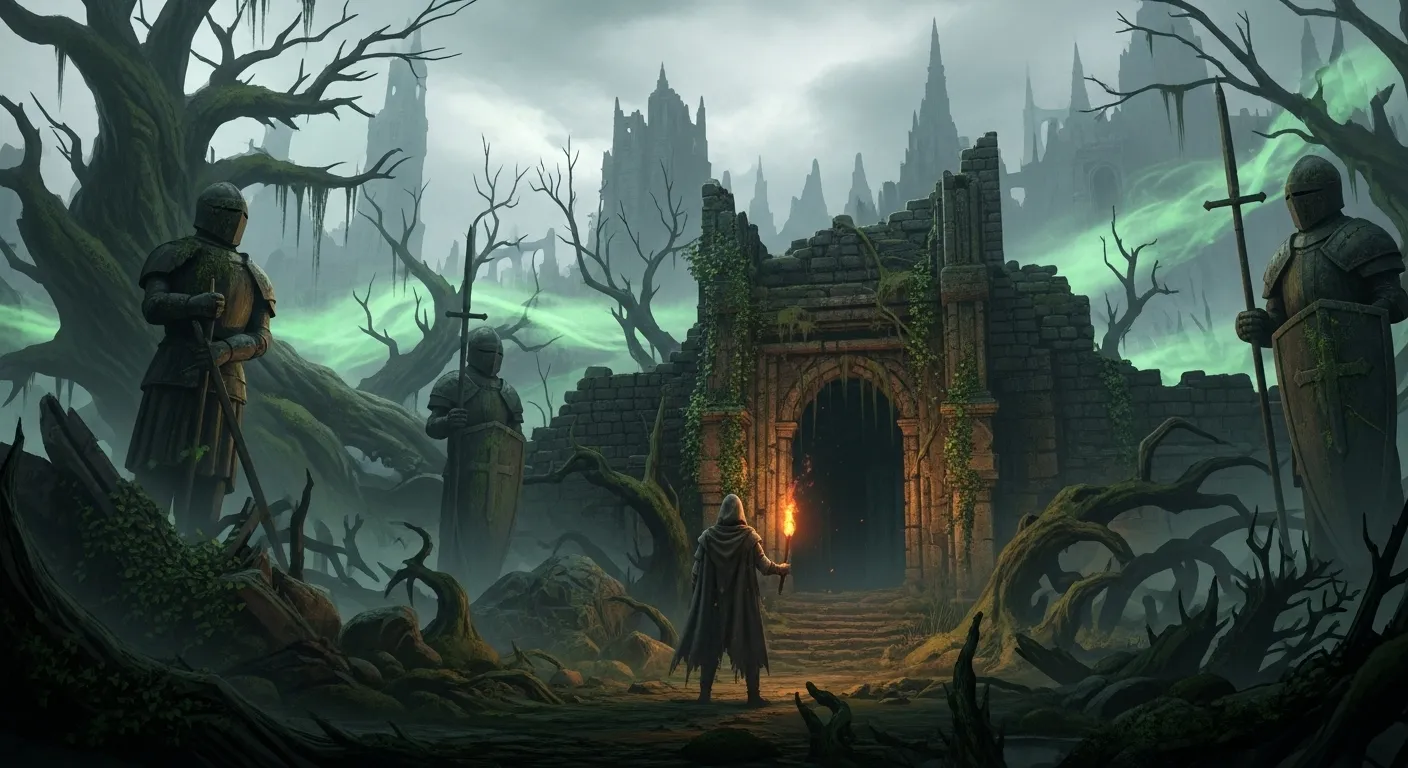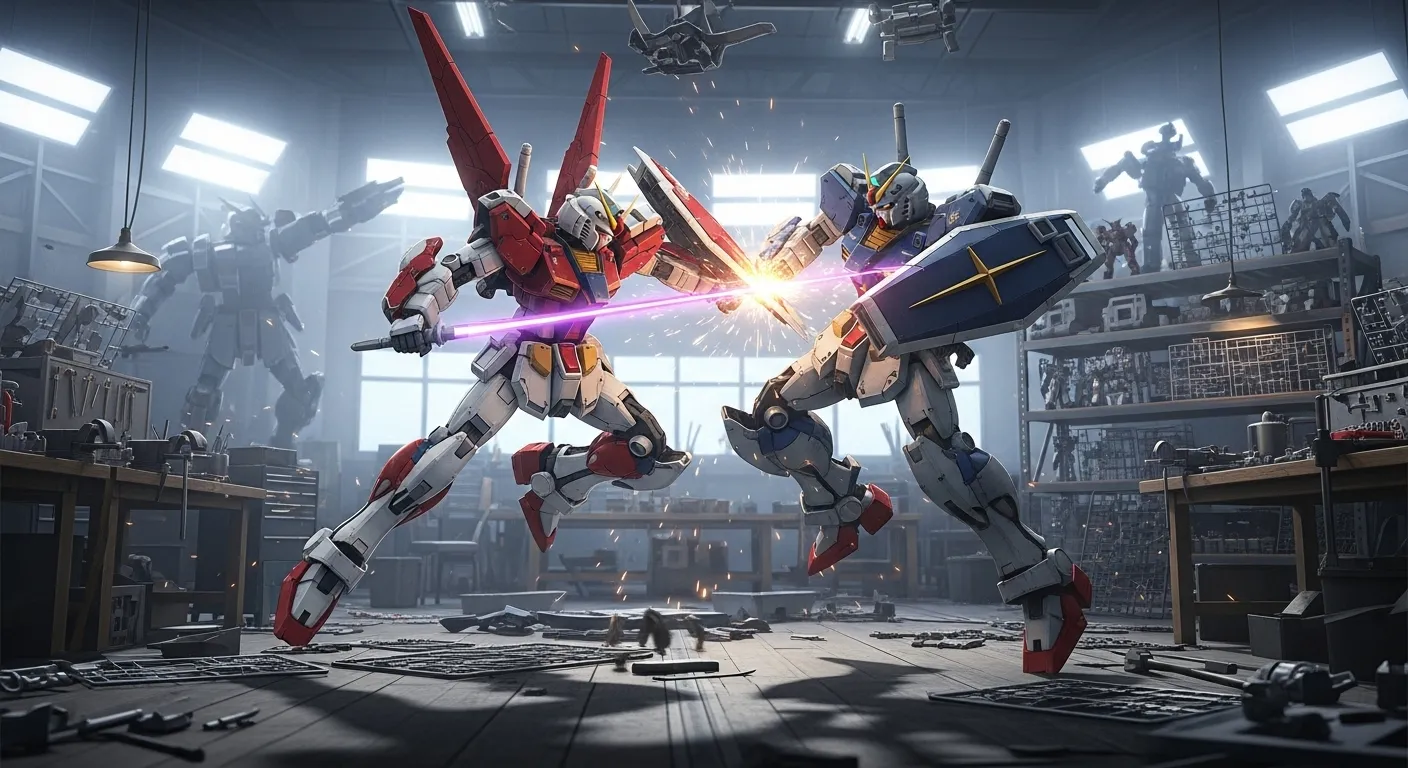As someone who has sunk a dumb number of hours into dark fantasy RPGs and hobby board games over the last decade, here’s my quick take: if you’re curious about tainted grail the fall of avalon as an open-world RPG rooted in Arthurian lore, survival mechanics, and grim quest design, it’s absolutely worth your time. It’s moody. It’s mean. It’s messy in the way good adventures are.
What Tainted Grail: The Fall of Avalon Actually Is (and Isn’t)
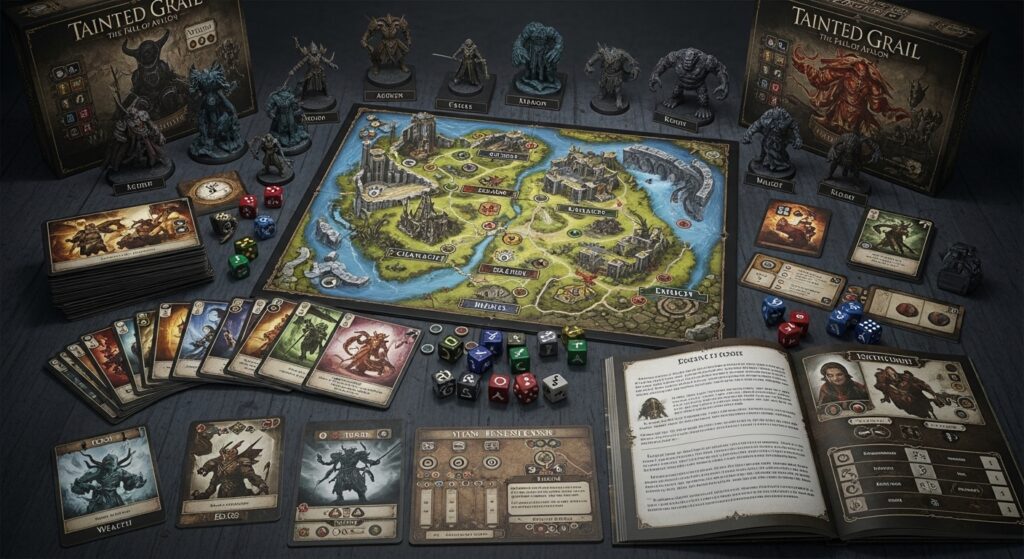
People mix this up, so let me be plain. There’s the board game, which is a stress test for your soul. And there’s the video game, an open-world RPG set in the same world. I play both. I like both. I swear at both, loudly.
In my experience, the video game hits because it respects the setting. It leans into the Wyrdness, that creeping fog that chews on hope and gear alike. It feels hands-on. Less “storybook,” more “oh no, my last torch just died.”
Quick Verdict: Bleak, Fair, and Addictive
- If you want cozy, go elsewhere. This is bleak, but fair.
- If you like exploration, resource management, and choice-heavy quests, you’ll be happy (and haunted).
- Combat’s fine. Not flashy. Think scrappy, not cinematic.
- The atmosphere slaps. Audio, lighting, the whole “Avalon is broken” vibe—chef’s kiss, if the chef lived in a swamp.
I’ve been tracking my fall backlog, and this one keeps pulling me back between tests and notes. If you want to see what else I’m poking this month, I dropped some quick logs here: September 2025 notes.
Why Avalon Works: Myth, Mood, and Ruin
I’m a sucker for dead kingdoms and half-remembered myths. Avalon is not a postcard. It’s a ruin with teeth. You don’t fetch the Holy Grail and get a parade. You scrounge, you listen, you decide which lie to trust today, and you try to make it to morning. The board game taught me the tone. The RPG lets me walk it.
If you want the straight lore dope, the summary on Arthurian legend helps explain why everything here feels twisted and familiar at the same time.
Story and Lore: Small Choices, Big Consequences
The main thread is simple: Avalon fell. The Grail myths went sour. You’re the poor wanderer cleaning up after legends who failed. The quests are often quiet, almost petty—lost people, broken vows, a shrine with no keeper. I’ve always found that small stories hit harder here than the “save everything” arc.
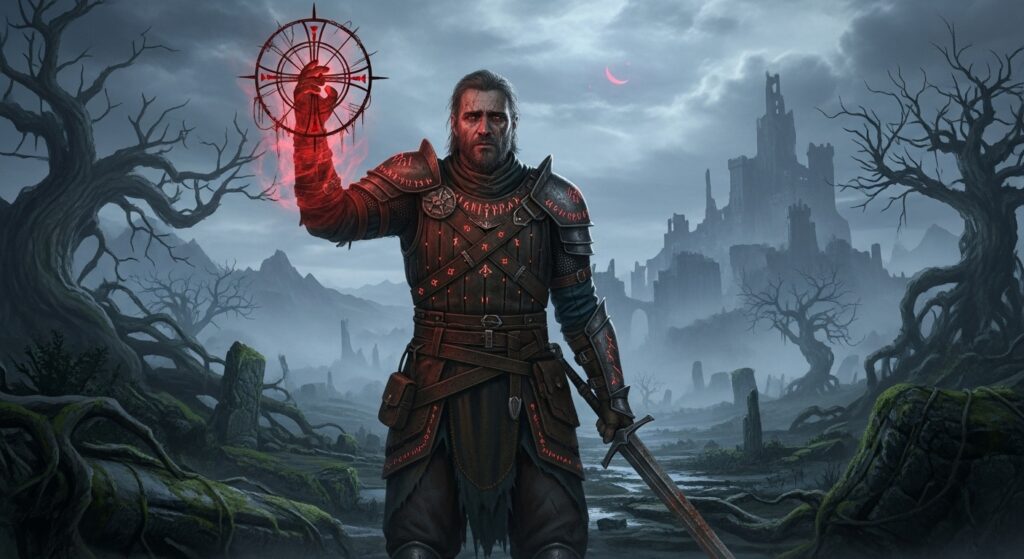
When I rank open worlds, I usually praise ones that don’t waste my time with map spam. This game mostly behaves. If you’re into my fussy tier lists, those live here: open-world rankings.
Core Systems That Actually Matter
- Exploration: Foggy paths. Hidden stories. Real risk once the light dies.
- Survival: Food, torches, rest. Ignore them and you get punished fast.
- Combat: Functional. Weighty. More “watch your stamina” than “watch this combo video.”
- Progression: Perks and skills that push your playstyle. I go for stealth and tracking. Because knives and patience.
- Quests: Choice-driven. Not always fair. Sometimes you grin, sometimes you groan.
For context on the studio and the origin, you can peek at the summary page for the game itself here: The Fall of Avalon overview. It’s brief, and it keeps you from arguing with your friends about where the Wyrdness came from (again).
Board Game vs Video Game: Fast Comparison
| Thing | Board Game | Video Game |
|---|---|---|
| Vibe | Bleak storybook, heavy decisions | Bleak open world, atmospheric immersion |
| Core Loop | Card-based encounters, resource tracks | Exploration, real-time combat, survival |
| Best For | Tabletop fans, campaign groups | Solo adventurers, RPG grinders |
| Learning Curve | Rulebook brain melt (worth it) | Tutorial bumps, then smooth |
| Story Delivery | Book paragraphs, branching pages | NPC dialogue, environmental storytelling |
Surviving the Wyrdness: Practical Tips That Keep You Alive
- Carry extra torches. The Wyrdness is not your buddy.
- Cook. Raw food is a tax on your health bar.
- Scout during daylight. Mark hideouts. Night is for fools and me on my third coffee.
- Pick a lane: stealth, melee bruiser, or hunter. Split builds feel weak.
- Talk to everyone, twice. Some stories hide behind a second pass.
I’ve got a rolling list of RPGs I compare it against, some big, some weirder. If you want to judge my taste (you should), the archive is here: RPG reviews.
Surprises and Realities of Avalon
Surprised: how quiet the world feels. Not empty—intentional. The sound design is doing heavy lifting. Wind, metal, distant chanting. It’s not jump scare land. It’s dread, slow and steady.
Not surprised: quests that don’t “fix” things. You may help a village survive a week longer, not forever. That’s the point. And it feels honest in a way power fantasies don’t.
Is It Like Skyrim? Sort Of, but Meaner
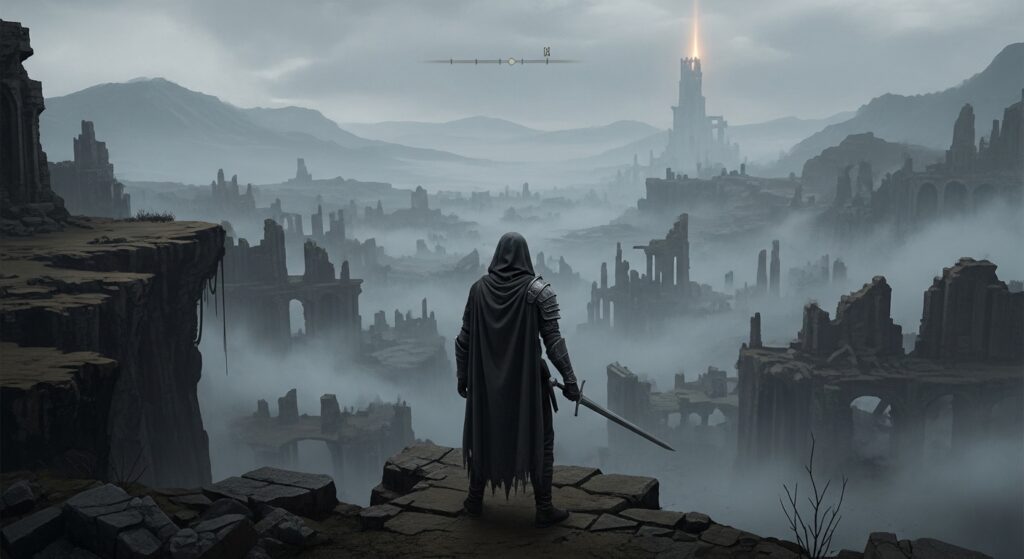
People ask me if it’s “like Skyrim but darker.” Kinda, but also no. It’s less toy-box, more guided tension. Side content has teeth. Wandering off gets you hurt. But it rewards careful play—tracking footprints, noticing strange stones, reading the land like a grumpy druid.
For folks who live for lore rabbit holes, I keep dropping notes and myth breakdowns here: game lore deep dives. It’s a whole thing now.
Who Should (and Shouldn’t) Play This
- You like slow-burn exploration and grim medieval fantasy.
- You can handle survival-lite systems without crying about realism.
- You want choices that change outcomes, not just quest markers.
- You enjoy Arthurian spins where the knights are cracked, not shiny.
Who probably won’t
- Players who hate stamina bars and weighty swings.
- Folks who want constant loot fireworks. This is not a slot machine.
- Anyone allergic to reading notes, books, and whispered gossip.
Frustrations Worth Noting
- UI has its moods. Inventory can feel sticky.
- Enemy variety dips in some zones. Swamp fatigue is real.
- Balance wobbles on certain builds. Patch roulette. It happens.
On quest design, I’m picky. I like when a simple task mutates into a moral knot. This game does that often. If you’re hunting for smarter quest trends, I pinned a roundup here: open-world quest innovations.
Quick Answers: Mini FAQs for New Players
Is it actually good right now?
Yeah. Rough edges, sure. But the bones are strong. I keep returning, which is my only real metric anymore.
How hard is it?
Not “souls-hard.” More “pay attention and you’re fine.” If you rush, the world slaps you. Fair enough.
Can I play it like a stealth ranger?
Yes. Bows, traps, patience. It’s my favorite way to roll. Feels right in the woods and ruins.
Is the story linear?
Main path is there, but your outcomes shift. Some NPCs live or vanish based on how you act. Small ripples. Real impact.
Does the world change at night?
Oh yes. Light matters. The Wyrdness creeps. Monsters wake up cranky. Bring torches and a plan.
If you’re curious how I stack this against other open worlds, I drop the data (and spicy takes) over here: my open-world rankings. Short, blunt, and probably wrong in three months.
Tips for New Players
- Start with a simple build. Learn the map. Don’t hoard skill points forever.
- Upgrade a home base early if you can. A stash saves runs.
- Craft arrows and bandages. Cheap power. Don’t sleep on alchemy.
- Read shrine text. Some blessings change the math of a fight.
- If an NPC sounds cagey, they are. Ask again after you do a thing nearby.
If you care about release timelines and updates, I toss quick week-to-week notes in my monthly roundup here: what I’m testing this month. It’s my messy desk, but public.
The Name Still Hits: Why It Matters
I think what keeps me loyal is the tone. Not edge for edge’s sake. More like: legends failed, people still try. That lands. I see the same thread in the old myths—glory costs, and not everyone pays it. That’s Avalon for me.
And yeah, if you want the super basic “what is Avalon” refresher, the entry here is clean and fast: Avalon overview. Handy when your friend insists it’s just an island spa.
Final Thoughts on a World That Refuses to Die
- The lighting is half the game. Watch how fog eats a torch line. It’s art and threat at once.
- Music stays in the pocket. Minimal, moody, better that way.
- Voice lines vary, but key NPCs are solid. Some village folks sound like they’ve seen three apocalypses. Believable, honestly.
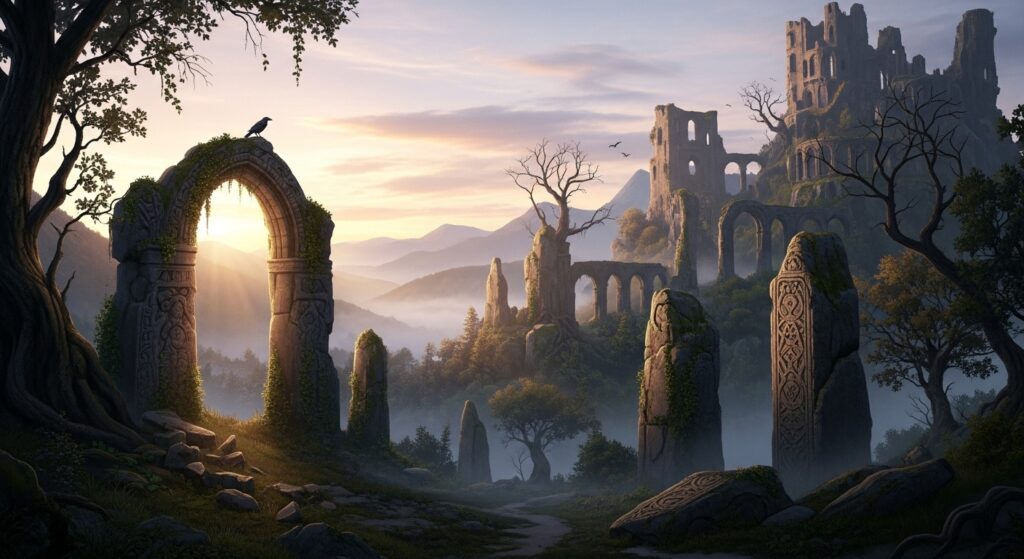
Oh—if you’re here for clean lore recaps and theory walls, I stack those in one place now: my lore corner. Safer than handing me a whiteboard.
Tainted Grail: The Fall of Avalon – FAQs
Is this game more story or more combat?
More story and exploration for me. Combat’s there, but the choices and mood do the heavy lifting.
Can I jump in if I never played the board game?
Totally. The video game stands alone. Knowing the board game adds flavor, not homework.
Does it run okay on mid-range PCs?
Yeah, with sensible settings. Drop shadows a bit and you’re golden. It’s improved a lot patch to patch.
How long is a first playthrough?
Depends on how nosey you are. I took around 30–40 hours poking every ruin and bush.
Is there a “best build” right now?
No single winner. Stealth ranger and bruiser melee both work. Pick what you like and commit.
Anyway. I’m off to get lost in another swamp and pretend it’s field work. If you see my torch go out—no you didn’t.

Thomas Hill: Your guide to epic adventures. I cover RPG Reviews, Walkthroughs, Game Lore, and Open World Rankings. Ready for your next quest?
